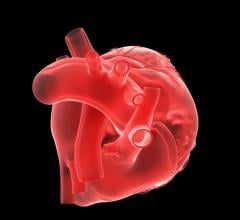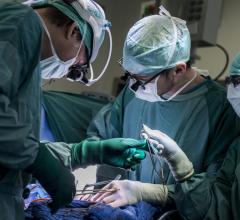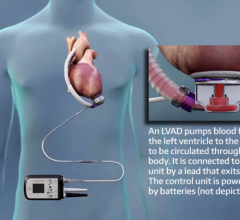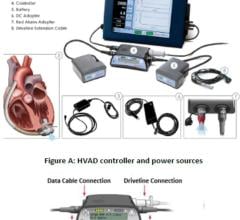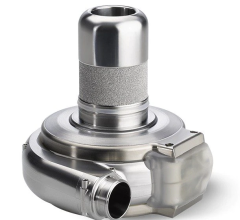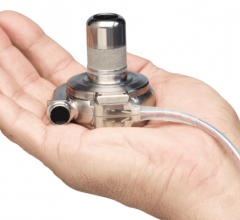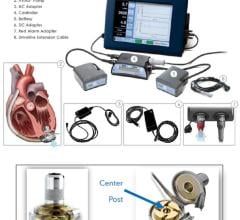March 21, 2008 – A central Ohio man has become the first person in the U.S., and only the 16th worldwide, to receive a heart implant called the CardioKinetix VPD Implant System designed to improve the heart’s pumping action and help manage congestive heart failure symptoms.
The procedure was performed at The Ohio State University Medical Center. The center is dedicated to heart failure and interventional research and is one of five academic medical centers participating in an FDA-approved safety and feasibility trial called U.S. PARACHUTE Trial. The device, CardioKinetix VPD Implant System, has FDA Investigational Exemption (IDE) approval for investigational use only and was developed by CardioKinetix Inc., Redwood City, CA.
Congestive heart failure occurs when a patient’s heart is not pumping blood efficiently, most often due to a weak heart muscle damaged by a prior heart attack. As part of a multicenter trial, the study device, which looks like a parachute turned inside out, is placed in the damaged portion of the pumping chamber of the heart and essentially partitions off the inefficient portion of the weakened heart chamber.
An advantage of the device is that it can be implanted via a small incision in the patient’s leg artery without the need for general anesthesia or open heart surgery, allowing for faster recovery time. Most patients, including the patient implanted at Ohio State, are discharged the day after the procedure.
“The concept of this device is to decrease the size of an abnormally enlarged heart with the hope of improving the patient’s symptoms such as shortness of breath, fatigue and swelling,” said Ernest Mazzaferri, Jr., M.D., an interventional cardiologist at Ohio State ’s Richard M. Ross Heart Hospital, who implanted the device March 11.
“This device has the potential to help many of these millions of heart failure patients,” said William T. Abraham, M.D., director of cardiovascular medicine at The Ohio State University Medical Center and national principal investigator for the trial.
The study is funded by CardioKinetix, Inc.
For more information: www.osumc.edu and www.cardiokinetix.com


 June 19, 2024
June 19, 2024 
